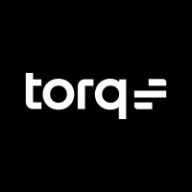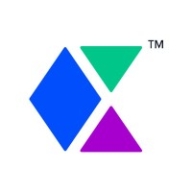


Cyware Cyber Fusion and Microsoft Sentinel compete in the cybersecurity platform category. Cyware holds a pricing advantage and excels in customer service, while Microsoft Sentinel offers a comprehensive feature set that justifies its higher price.
Features: Cyware Cyber Fusion provides advanced threat intelligence integration, robust automation capabilities, and seamless system alignment. Microsoft Sentinel supports extensive integrations with Microsoft and third-party applications, powerful analytics for threat detection, and a wide range of customizable security solutions.
Ease of Deployment and Customer Service: Cyware ensures quick deployment with top-notch customer support for smooth integration. Microsoft Sentinel offers substantial installation support but involves a more complex deployment process. Both platforms maintain satisfactory customer service.
Pricing and ROI: Cyware Cyber Fusion's lower initial setup cost and transparent pricing structure offer better ROI for small to medium-sized businesses. Microsoft Sentinel requires a higher initial investment with substantial long-term ROI due to its extensive security features.
| Product | Market Share (%) |
|---|---|
| Microsoft Sentinel | 13.0% |
| Torq | 4.9% |
| Cyware Cyber Fusion | 1.5% |
| Other | 80.6% |


| Company Size | Count |
|---|---|
| Small Business | 38 |
| Midsize Enterprise | 22 |
| Large Enterprise | 45 |
Torq is the enterprise AI SOC solution that effectively combines adaptive insights and automation to handle critical threats efficiently. It manages threat lifecycles, swiftly moving from triage to response, ensuring effective risk management.
Torq is designed to streamline security operations by aggregating telemetry across your security stack. It investigates significant risks and manages threats from triage to containment and remediation. This AI-driven tool enhances the capabilities of your SecOps team, allowing them to achieve more impactful results without introducing complicated processes.
What are the key features of Torq?In industries like finance and healthcare, Torq shows effectiveness by adapting to specific risk scenarios often encountered in these fields. Its integration with existing infrastructures makes it a valuable asset for maintaining stringent security standards, essential for protecting critical data and operations in diverse high-stakes environments.
More than just a security automation tool, Cyber Fusion unites threat intel and SOAR to automate any security tool, orchestrate any environment, and collaborate across any boundary, to yield more intelligent threat response.
Microsoft Sentinel is a scalable, cloud-native, security information event management (SIEM) and security orchestration automated response (SOAR) solution that lets you see and stop threats before they cause harm. Microsoft Sentinel delivers intelligent security analytics and threat intelligence across the enterprise, providing a single solution for alert detection, threat visibility, proactive hunting, and threat response. Eliminate security infrastructure setup and maintenance, and elastically scale to meet your security needs—while reducing IT costs. With Microsoft Sentinel, you can:
- Collect data at cloud scale—across all users, devices, applications, and infrastructure, both on-premises and in multiple clouds
- Detect previously uncovered threats and minimize false positives using analytics and unparalleled threat intelligence from Microsoft
- Investigate threats with AI and hunt suspicious activities at scale, tapping into decades of cybersecurity work at Microsoft
- Respond to incidents rapidly with built-in orchestration and automation of common tasks
To learn more about our solution, ask questions, and share feedback, join our Microsoft Security, Compliance and Identity Community.
We monitor all Security Orchestration Automation and Response (SOAR) reviews to prevent fraudulent reviews and keep review quality high. We do not post reviews by company employees or direct competitors. We validate each review for authenticity via cross-reference with LinkedIn, and personal follow-up with the reviewer when necessary.